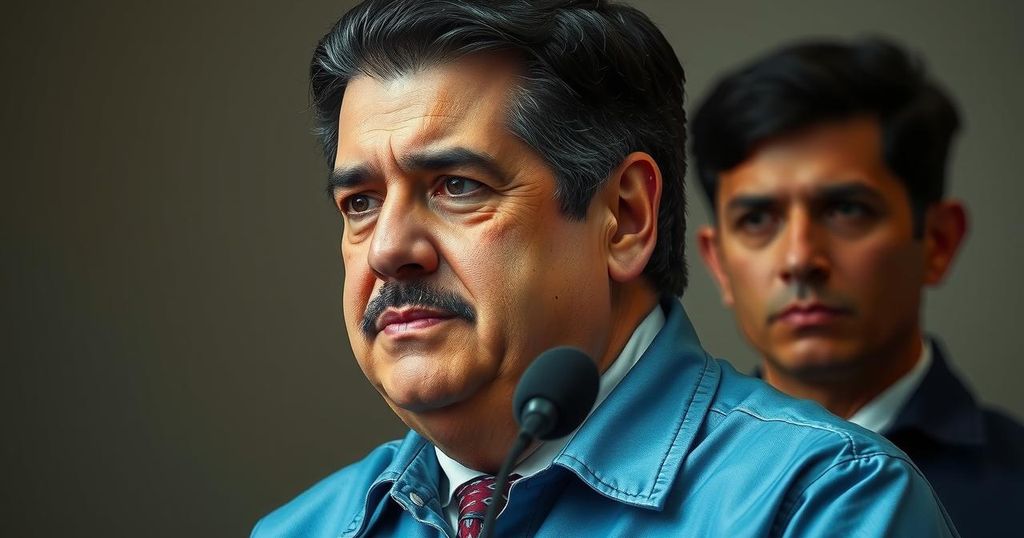The situation in Venezuela has devolved from recognizable economic and social hardships into a pervasive environment of repression following the July election. Nicolás Maduro’s government has intensified its authoritarian tactics against dissenters, creating an atmosphere of fear, particularly for those affiliated with the opposition. With the asylum-seeking aides of María Corina Machado experiencing firsthand the oppressive regime, the plight of the Venezuelan populace highlights the urgent need for international intervention to address systemic oppression.
In Venezuela, a transformation from widespread recognition of social issues to a dark reality of oppression marks a critical juncture in the nation’s trajectory. Once synonymous with “la situación,” a term encompassing economic collapse and criminality, discussions have now shifted to the pervasive climate of “la represión.” Following a July 28 election where President Nicolás Maduro faced substantial rejection, citizens have experienced intensified governmental repression, marked by fear and silence. As retributive measures unfold in the aftermath of perceived electoral humiliation, a stark landscape of fear and control has emerged, reshaping daily life for many Venezuelans.
Historically, Venezuela has endured numerous waves of repression, particularly under Maduro’s regime, which has jailed thousands of dissenters while permitting some economic leeway in recent years. However, the joy of newfound freedoms faded rapidly post-election as authoritarian tactics ensued post-vote. The government’s refusal to acknowledge its electoral losses led to an atmosphere where the most innocuous dissent is met with severe repercussions. From checkpoints inspecting citizens’ devices to quick detentions, the population has been rendered increasingly vigilant of their statements and actions.
In a troubling twist, Maduro has targeted not only political figures but also the common citizenry, invoking a climate of fear that discourages any form of visible governance challenge. Reports of individuals being plucked from their homes, merely for attending protests or possessing anti-government content, illustrate the intensifying grip of government control. The plight of six aides to the opposition leader María Corina Machado, seeking refuge in the Argentine embassy, starkly outlines the cruel methods employed by Maduro’s government in quashing dissent. The stark irony of embassies, previously safe havens, now transforming into prisons, underscores the severe shift in dynamics for those opposing the regime.
While many believe that as long as they refrain from overtly challenging the government, they may escape repression, the current environment proves otherwise. The arrests appear arbitrary and instill an unease that seeps into the fabric of everyday life. The precarious situation surrounding Machado’s aides also reflects the complexities of international political asylum laws, which the Maduro regime seems willing to flout in service of its retributive agenda. In recent months, the Venezuelan government has militarized the area surrounding these asylum-seekers, subjecting their living conditions to severe restrictions, effectively holding them hostage under the guise of law enforcement.
The unrest following the election is compounded by instances where Maduro refrains from directly challenging Machados’s power, opting instead to cultivate a culture of fear aimed at those aligned with her. This strategy serves to destabilize opposition support while allowing him to maintain a veneer of authority. The absence of direct tactics against prominent figures like Machado only underscores the regime’s willingness to punish softer targets, erasing the last vestiges of hope for ordinary Venezuelans hoping for a change.
The story of repression in Venezuela serves as a grim reminder of the lengths to which authoritarian regimes will go to preserve power, as well as the resilience of the human spirit amidst unrelenting adversity. As change remains painfully out of reach for most Venezuelans, the urgency for international oversight and intervention grows ever more critical to end the cycle of systemic oppression that has gripped this nation for years.
Venezuela has long been embroiled in a deepening political and economic crisis. Following the death of Hugo Chávez in 2013, Nicolás Maduro ascended to power amid an unraveling economy, characterized by hyperinflation, food shortages, and increasing crime rates. The narrative of “la situación” encapsulated this downfall, becoming a common reference point among citizens. In more recent times, the concepts of oppression and fear—summed up as “la represión”—have taken center stage, particularly following allegations of electoral fraud in the July 28 election, where Maduro appeared to face significant public resistance.
In conclusion, the current state of Venezuela illustrates a troubling shift towards systemic oppression under Nicolás Maduro’s government, particularly following the July election. The comprehensive nature of this repression impacts all aspects of life, instilling fear and complicity among the populace. With an international legal framework at odds with Maduro’s repressive tactics, the urgent need for global awareness and response to the plight of Venezuelans remains ever pressing, illuminating the grim realities faced by countless individuals in the struggle for freedom.
Original Source: www.theatlantic.com







